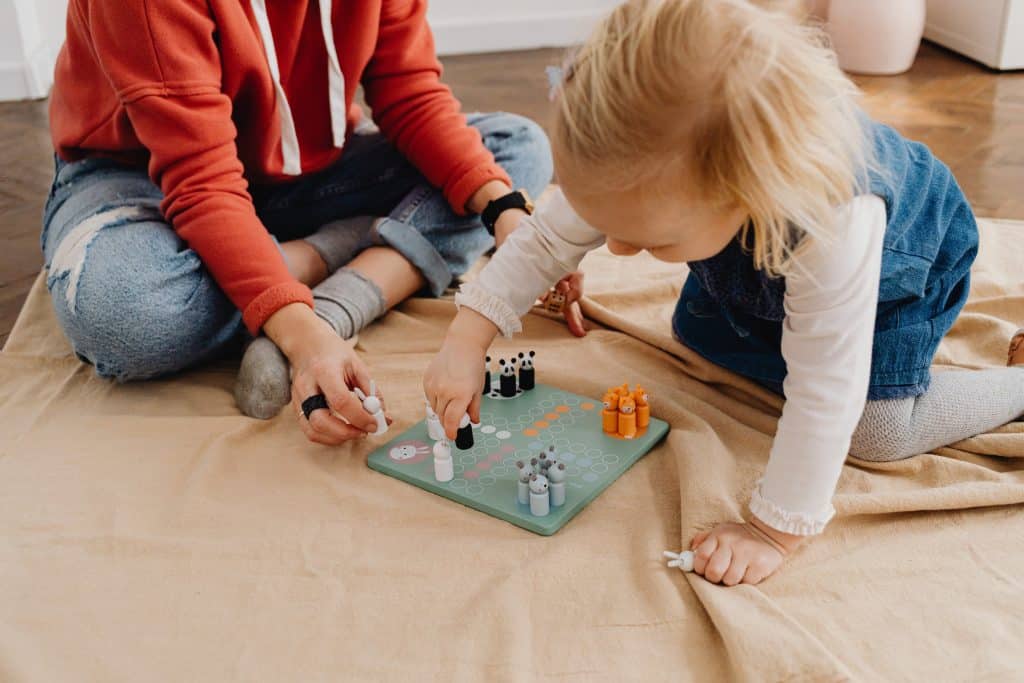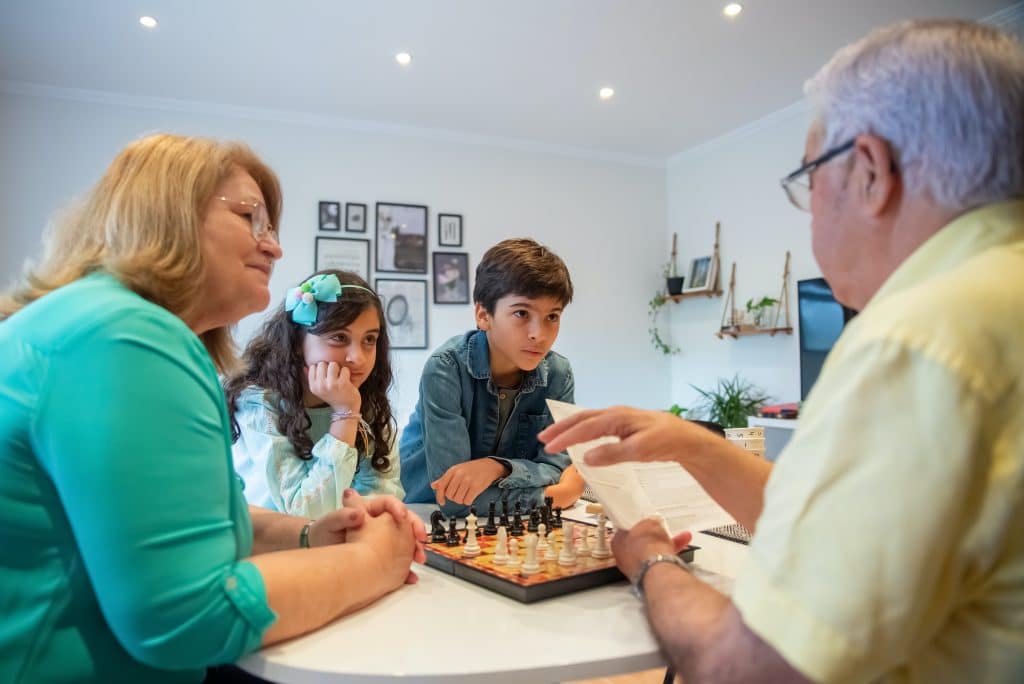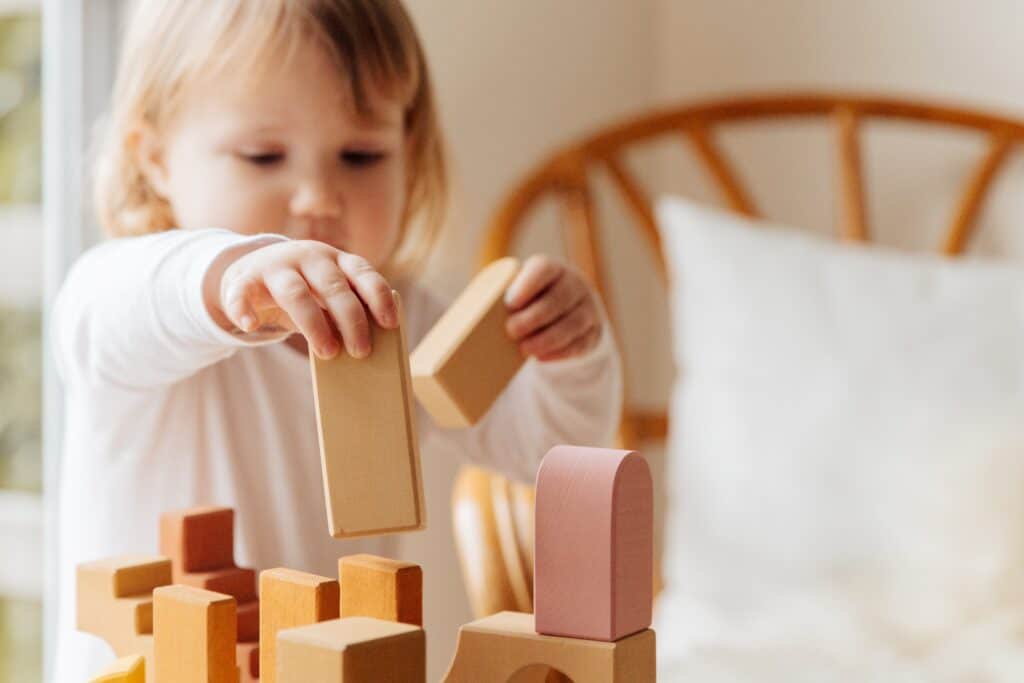As a licensed practitioner who works with neurodivergent kids, I’ve seen firsthand the joy and excitement that board games can bring to kids with autism. Playing board games is not only a fun pastime, but it also offers numerous benefits for children with thinking and learning differences. These activities can help improve social skills, cognitive abilities, and emotional regulation. I’ve put together a list of 11 engaging ways to play board games with your child on the autism spectrum, tailored to their unique needs and interests.
Table of Contents
1. Choose Games with Simple Rules
When selecting board games for kids with autism, opt for those with straightforward rules and minimal complexity. Games like Candy Land, Chutes and Ladders, or Guess Who? are perfect examples. These games have clear objectives and require minimal reading, making them easier for children with learning disabilities to understand and enjoy.
According to a study by the Journal of Autism and Developmental Disorders, children with autism often prefer games with predictable patterns and routines. By choosing games with simple rules, you create a comfortable and engaging environment for your child to learn and have fun.
2. Incorporate Visual Aids
Many children with autism are visual learners, so incorporating visual aids into your board game sessions can be incredibly helpful. Use pictures, symbols, or color-coding to help your child understand the game’s rules and objectives. For example, you can create a visual guide that outlines the steps of the game or use colored tokens to represent different actions.
A recent study published in the Journal of Autism and Developmental Disorders found that using visual supports significantly improved the board game skills of children with autism. By providing visual cues, you can help your child stay focused and engaged throughout the game.

Read more: 7 Fun Activities for Kids With ADHD
3. Modify the Game to Suit Your Child’s Needs
Every child with autism is unique, and what works for one may not work for another. Feel free to modify the rules or gameplay to accommodate your child’s specific needs and abilities. For instance, if your child struggles with turn-taking, you can introduce a visual timer or a “turn token” to help them understand when it’s their turn to play.
Additionally, you can simplify the game by reducing the number of players or removing certain elements that may be overwhelming for your child. The goal is to create an enjoyable experience that caters to your child’s individual preferences and challenges.
4. Practice Turn-Taking and Social Skills
Board games provide an excellent opportunity for kids with autism to practice essential social skills, such as turn-taking, communication, and sportsmanship. Encourage your child to wait for their turn, express themselves clearly, and congratulate others on their successes. Praise your child when they demonstrate these positive behaviors, reinforcing the importance of these skills.
You can also use role-playing techniques to model appropriate social interactions during the game. For example, demonstrate how to politely ask for a turn or how to graciously accept defeat. By consistently practicing these skills in a fun and engaging context, your child can develop greater social awareness and confidence.
5. Use Positive Reinforcement
Positive reinforcement is a powerful tool when working with children with autism. Whenever your child displays desired behaviors during a board game, such as following the rules, waiting for their turn, or being a good sport, reward them with praise, stickers, or small tokens. This encourages them to repeat these positive actions in the future.
According to a study published in the Journal of Applied Behavior Analysis, using positive reinforcement consistently can lead to significant improvements in social and adaptive behaviors in children with autism. By celebrating your child’s successes and efforts, you create a supportive and motivating environment that fosters growth and learning.
6. Encourage Teamwork and Cooperation
Collaborative board games, such as Forbidden Island or Castle Panic, can be particularly beneficial for kids with autism. These games require players to work together towards a common goal, promoting teamwork, communication, and problem-solving skills. Encourage your child to share ideas, listen to others, and contribute to the team’s success.
Playing cooperative games can help your child develop a sense of belonging and improve their ability to navigate social situations. As they learn to collaborate with others, they build valuable skills that can translate to real-life interactions with peers and family members.

7. Create a Sensory-Friendly Environment
Many children with autism have sensory sensitivities that can impact their ability to focus and enjoy activities. When setting up a board game session, consider creating a sensory-friendly environment that minimizes distractions and promotes comfort. This may include dimming the lights, reducing background noise, or providing sensory toys or fidgets for your child to use during the game.
Pay attention to your child’s sensory needs and make adjustments as necessary. Some children may prefer a quiet, enclosed space, while others may benefit from a more open and well-lit area. By creating a sensory-friendly environment, you can help your child feel more relaxed and engaged during the game.
8. Incorporate Favorite Characters or Themes
Many kids with autism have special interests or favorite characters that can be incorporated into board game play. Look for games that feature your child’s beloved characters or themes, such as Disney princesses, superheroes, or trains. This can help increase their motivation and engagement during the game.
You can also create your own custom game pieces or boards using your child’s favorite characters or themes. For example, if your child loves dinosaurs, you can use toy dinosaurs as game tokens or create a dinosaur-themed game board. By tailoring the game to your child’s interests, you create a more personal and enjoyable experience.

Read More: 39 Best Games for Autism
9. Use Board Games as Teaching Tools
Board games can be excellent tools for teaching various skills and concepts to children with autism. Many games involve counting, color recognition, reading, or problem-solving, which can help reinforce these skills in a fun and engaging way. Look for games that align with your child’s learning goals and incorporate them into your play sessions.
For example, if your child is working on math skills, you can play games like Monopoly Junior or Sum Swamp to practice counting and basic arithmetic. If you’re focusing on language development, games like Hedbanz or Scattergories can help expand vocabulary and improve communication skills.
10. Make It a Family Activity
Playing board games as a family can be a wonderful way to bond and create lasting memories. Involve siblings, parents, and other family members in your game sessions, fostering a sense of togetherness and support. Family game nights can help your child with autism feel included and valued, while also providing opportunities for social interaction and skill-building.
Encourage all family members to be patient, understanding, and supportive during the game. Model good sportsmanship and celebrate everyone’s successes, regardless of who wins or loses. By making board games a regular family activity, you create a positive and inclusive environment that benefits everyone involved.
11. Have Fun and Be Flexible
Above all, remember that playing board games with your child with autism should be a fun and enjoyable experience. Don’t get too caught up in following the rules perfectly or achieving specific goals. Instead, focus on creating a relaxed and playful atmosphere where your child feels comfortable and happy.
Be flexible and open to modifying the game or taking breaks as needed. If your child becomes overwhelmed or loses interest, it’s okay to pause the game and return to it later. The most important thing is that you’re spending quality time together and fostering a love for learning and play.
Goally | Fun Games that Build Motor Skills & Manage Screen Time
Looking for ways to improve your child’s finger dexterity skills while also keeping screen time manageable? Try Goally’s fun & motor planning apps.
Our Balloons & Graffiti Street Apps are all about building motor skills in a fun, interactive way. Kids learn to “pop the balloons” or draw dozens of digital art designs while simultaneously developing the essential skills needed to use AAC and other communication tools. Meanwhile, Game Garage is a parent-controlled space filled with entertaining (but parent-controlled) video games that kids can unlock with the points they earn from completing routines.
Playing board games with kids with autism can be a wonderful way to bond, learn, and have fun together. By choosing games with simple rules, incorporating visual aids, modifying gameplay, and focusing on social skills and positive reinforcement, you can create engaging and meaningful experiences for your child. Remember to be patient, flexible, and most importantly, to enjoy the time you spend together. With these 11 tips in mind, you and your child can embark on countless adventures and create cherished memories through the world of board games.
Helpful Resources
FAQs About Board Games for Autism
What are some good board games for children with autism? Some excellent board games for children with autism include "Outfoxed," "Hoot Owl Hoot," and "Peaceable Kingdom Dinosaur Escape." They focus on cooperation and are adaptable to individual needs.
How can board games benefit children with autism? Board games can boost social skills, promote strategic thinking, and improve emotional regulation in children with autism. They also provide a fun, interactive way to learn and grow.
Can board games for autism be adapted to fit a child's unique needs? Absolutely! Adapting rules and gameplay to meet a child's unique needs and comfort levels is not just an option but is encouraged.
How do I choose the suitable board game for my child with autism? Consider your child's interests, patience level, and cooperation ability. Opt for games that promote collaboration and can be easily explained and modified.
What should I do if my child with autism finds a board game difficult or frustrating? It's important to reassure your child and make modifications to simplify the game. Always remember, the aim is to enjoy playing.
This post was originally published on 08/16/2022. It was updated on 05/18/2024.

Hennah is an experienced writer and researcher, helping children with autism, ADHD, and other neurodivergent conditions. As a blog contributor for Goally, she combines her deep understanding of neurodiversity with practical advice, offering valuable insights to parents and educators.







